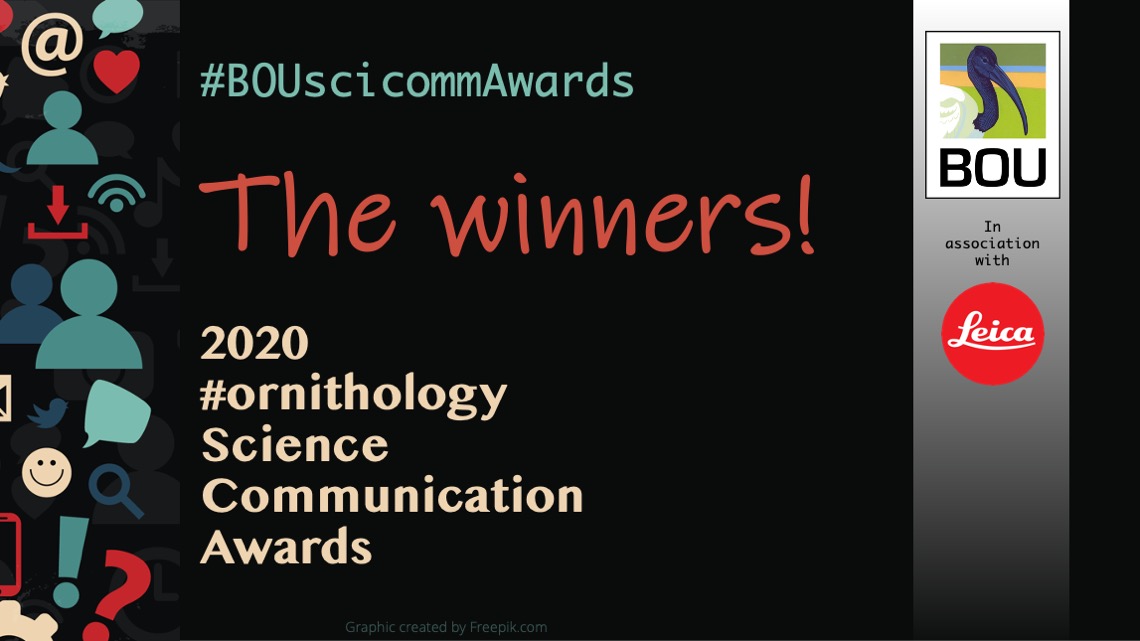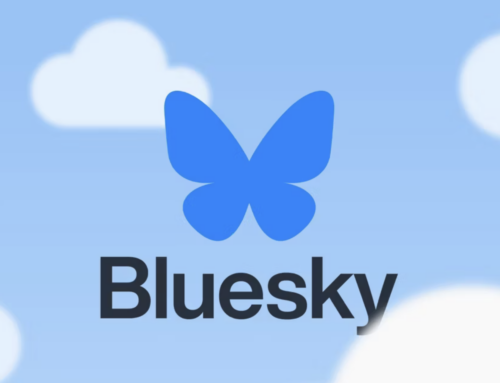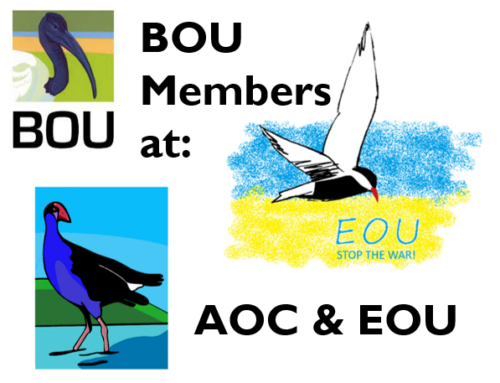
It’s with great pleasure that we can announce the winners of the BOU’s 2020 science communication awards, supported by Leica UK.
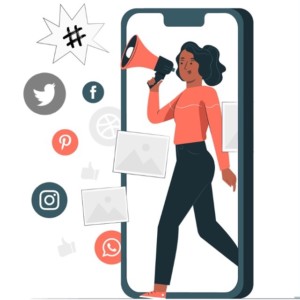
Best social media scicommer
Mery Nomsa
South Africa | @merynomsa on Twitter
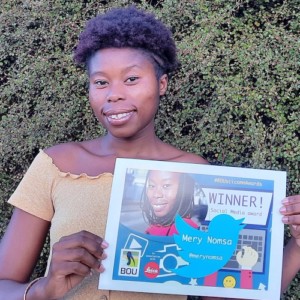
“This award means the validation of the value and need for science communicators”

Best of #theBOUblog
Roselvy Juárez and Luis Sandoval
Costa Rica | @RoselvyJuarez on Twitter
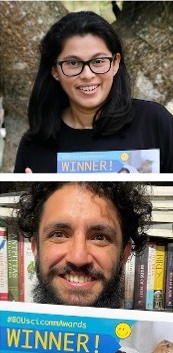
“We never anticipated a nomination for a scicomm award!”
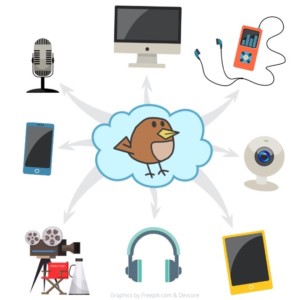
Best sound and vision scicommer
Amy Hall
UK | @AmyHallWildlife on Twitter
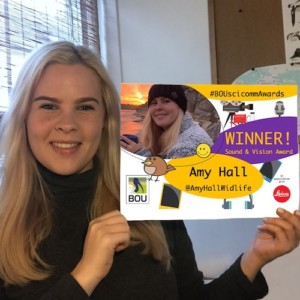
“Winning the BOU scicomm award is truly a huge honour”
Researchers put in a lot of time, energy and passion in communicating their work, just as they do with for the research itself, and it’s hugely important to recognise and celebrate these efforts. Whilst we congratulate our winners we should also celebrate all those who were short-listed for our three awards for the amazing job they do and how the inspire others to do their own scicomm.
See all the nominees for the three awards
These BOU scicomm awards have also shown once more how much the BOU is at the forefront of promoting science communication within ornithology, championing the use of social media for promoting and discussing research, and #theBOUblog is one of the most-read avian science blogs in the world – in 2020 it received over 59,000 page reads!
We thought the best way to celebrate our winners was to give space to their own words, so we asked each of them some simple questions about their scicomm and the role it plays in their research.
Congratulations! You’re a BOU scicomm award winner! What does it mean/represent for you?
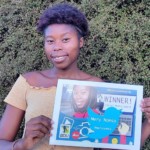 Mery: This award means a lot to me, especially the validation of the value and need for science communicators to conservation impact. It gives insight to the conservationists of the impact of carefully communicated conservation concepts to the general public. It is crowning and appreciation of the work I have done over the years and encouragement to keep going. It represents the hope that ecology and conservation fields are beginning to recognise the work of science communicators and the need to recruit scientists with different offerings from pure research into project teams.
Mery: This award means a lot to me, especially the validation of the value and need for science communicators to conservation impact. It gives insight to the conservationists of the impact of carefully communicated conservation concepts to the general public. It is crowning and appreciation of the work I have done over the years and encouragement to keep going. It represents the hope that ecology and conservation fields are beginning to recognise the work of science communicators and the need to recruit scientists with different offerings from pure research into project teams.
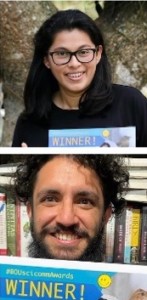 Roselvy: I was thrilled when I was nominated as a finalist. I did not expect the nomination, let alone, to actually win the award! There are many people out there doing science communication who have a huge impact and are so far-reaching in their efforts, that I felt humbled to be considered among them. Winning this award is a beautiful testament to the work that Luis Sandoval is leading in the Lab of Urban Ecology and Animal Communication in Costa Rica as well as an invitation to do more, to be a better ornithologist.
Roselvy: I was thrilled when I was nominated as a finalist. I did not expect the nomination, let alone, to actually win the award! There are many people out there doing science communication who have a huge impact and are so far-reaching in their efforts, that I felt humbled to be considered among them. Winning this award is a beautiful testament to the work that Luis Sandoval is leading in the Lab of Urban Ecology and Animal Communication in Costa Rica as well as an invitation to do more, to be a better ornithologist.
Luis: Thank you very much, this represents an honor.
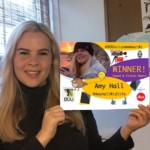 Amy: Winning the BOU scicomm award is truly a huge honour. I started the 60 Second Zoology series to provide a focus for myself and others during a tough time, with the main aim of sharing some knowledge in a fun way. I had not anticipated at all that it would be nominated for an award such as this, so to be involved with this competition has been a real privilege. I hope that I can continue to provide zoological content for all to enjoy.
Amy: Winning the BOU scicomm award is truly a huge honour. I started the 60 Second Zoology series to provide a focus for myself and others during a tough time, with the main aim of sharing some knowledge in a fun way. I had not anticipated at all that it would be nominated for an award such as this, so to be involved with this competition has been a real privilege. I hope that I can continue to provide zoological content for all to enjoy.
How did you react when you found out you had been short-listed for a BOU scicomm award?
 Mery: I was anxious but excited. I was anxious because competition terrifies me and I love the diversity of the different nominees and how they are at the top of their game for their audiences. I was very excited that my tweets and conversations with people I’ve met online had been memorable and impactful and I felt encouraged to become consistent and intentional. BOU is a giant in ornithology globally, to be recognised by the BOU was both humbling and exhilarating.
Mery: I was anxious but excited. I was anxious because competition terrifies me and I love the diversity of the different nominees and how they are at the top of their game for their audiences. I was very excited that my tweets and conversations with people I’ve met online had been memorable and impactful and I felt encouraged to become consistent and intentional. BOU is a giant in ornithology globally, to be recognised by the BOU was both humbling and exhilarating.
 Roselvy: Surprised and excited. I was not anticipating the nomination to the scicomm award! As I processed the nomination, I felt so honored to share the nomination with great scientists Bingrun Zhu and Anouk Spelt.
Roselvy: Surprised and excited. I was not anticipating the nomination to the scicomm award! As I processed the nomination, I felt so honored to share the nomination with great scientists Bingrun Zhu and Anouk Spelt.
Luis: Well, it was a big surprise, because with all the great blogs that were published last year, just being selected in the short-list made me feel like a winner.
 Amy: Finding out I had been short-listed was certainly a surprise! I have been very busy recently with my Masters and job applications as well as putting together new content for each episode, so it meant a lot to be recognised for this.
Amy: Finding out I had been short-listed was certainly a surprise! I have been very busy recently with my Masters and job applications as well as putting together new content for each episode, so it meant a lot to be recognised for this.
What’s your purpose and motivation to do science communication?
 Mery: I discovered conservation, natural sciences and ornithology too late in my life and I endeavoured to open the doors for others like myself to experience nature the way it should be experienced, with open eyes, appreciation and knowledge. I want to build a bridge between conservation practice and the general public especially in Africa where communication is often broken down or not invested in. I want to facilitate learning between scientists and the public to maximise the possible achievements of conservation with the buy-in of the people. I am motivated by what could be possible when negative perceptions are changed on both ends of the spectrum and people work together for nature.
Mery: I discovered conservation, natural sciences and ornithology too late in my life and I endeavoured to open the doors for others like myself to experience nature the way it should be experienced, with open eyes, appreciation and knowledge. I want to build a bridge between conservation practice and the general public especially in Africa where communication is often broken down or not invested in. I want to facilitate learning between scientists and the public to maximise the possible achievements of conservation with the buy-in of the people. I am motivated by what could be possible when negative perceptions are changed on both ends of the spectrum and people work together for nature.
 Roselvy: I wanted to communicate our results to the widest audience possible, including our colleagues. The final purpose was that we can all contribute to advance our knowledge in this field, to better understand how human noise is impacting birds and other wildlife in cities.
Roselvy: I wanted to communicate our results to the widest audience possible, including our colleagues. The final purpose was that we can all contribute to advance our knowledge in this field, to better understand how human noise is impacting birds and other wildlife in cities.
Luis: My motivation for communicating science lies in making scientific information accessible to all people in a simple way. This will allow people to learn first-hand the importance of scientific research in understanding ecology and the world we live in.
 Amy: I feel that there is a lot of incredible work happening in science, of which only a tiny fraction makes it to mainstream media where a general audience can see. The great majority of people have an interest in the natural world, therefore by giving snippets of information which are quick and easy to consume I am hoping to increase a general appreciation for wildlife.
Amy: I feel that there is a lot of incredible work happening in science, of which only a tiny fraction makes it to mainstream media where a general audience can see. The great majority of people have an interest in the natural world, therefore by giving snippets of information which are quick and easy to consume I am hoping to increase a general appreciation for wildlife.
Why do you think more people should give it a go?
 Mery: There are many stories that are unique and targetted needing to be told by researchers and scientists of their experiences. The human experience of relating before agreeing and supporting. People support people first before they support brilliant ideas. More science communicators need to contribute to make science, ornithology and conservation relatable. It is the best way to seek and be in community with like-minds and expand your influence with different minded communities.
Mery: There are many stories that are unique and targetted needing to be told by researchers and scientists of their experiences. The human experience of relating before agreeing and supporting. People support people first before they support brilliant ideas. More science communicators need to contribute to make science, ornithology and conservation relatable. It is the best way to seek and be in community with like-minds and expand your influence with different minded communities.
 Roselvy: Because it is a fun way to share what you found with a larger group of people. Also, because it is a great challenge for most ornithologists!
Roselvy: Because it is a fun way to share what you found with a larger group of people. Also, because it is a great challenge for most ornithologists!
Luis: More people need to communicate science because currently there is a lot of misinformation produced by fake news published in social networks, generating disinformation and aversion to science. Communicating science also teaches people how the money from governments is invested and the impact of that money. Finally, it allows people outside of academia to learn about the different species and ecosystems from experts in an easy and clear way.
 Amy: Scicomm is a lot of fun, especially when you have a lot of knowledge about it. I would always recommend bioscience students giving it a go, our work is super interesting and super important, why not share it? The great thing about science communication is how versatile it can be. This competition demonstrates that perfectly, with communication in the form of blogs, comics and videos.
Amy: Scicomm is a lot of fun, especially when you have a lot of knowledge about it. I would always recommend bioscience students giving it a go, our work is super interesting and super important, why not share it? The great thing about science communication is how versatile it can be. This competition demonstrates that perfectly, with communication in the form of blogs, comics and videos.
Any other thoughts on the importance of ornithology scicomm?
 Mery: Conservation science and ornithology need to learn from local knowledge and beliefs to appropriately plan and present research projects and subsequent science communication. Scientific facts must be communicated in a manner that is most impactful and memorable to change the attitudes of audiences previously not part of conservation conversations.
Mery: Conservation science and ornithology need to learn from local knowledge and beliefs to appropriately plan and present research projects and subsequent science communication. Scientific facts must be communicated in a manner that is most impactful and memorable to change the attitudes of audiences previously not part of conservation conversations.
 Roselvy: Scientific papers are by nature somewhat formulaic in structure and can be perceived as intimidating by non-scientists, including for some of our world leaders. I believe that it is not enough to simply advance our ornithological knowledge without communicating these advances to a wider audience, because only then can it help to create support for bird conservation. Social media provides a platform to achieve that!
Roselvy: Scientific papers are by nature somewhat formulaic in structure and can be perceived as intimidating by non-scientists, including for some of our world leaders. I believe that it is not enough to simply advance our ornithological knowledge without communicating these advances to a wider audience, because only then can it help to create support for bird conservation. Social media provides a platform to achieve that!
Luis: Participating in the dissemination of science should be a requirement for all researchers today and having a place like your highly visited blog helps to get that goal. Finally, acknowledging the people who contribute to science communication efforts motivate the contributors and new people to continue with this important social work.
 Amy: Ornithology is a wonderful field, though with some persisting issues with how it is viewed. Ornithology needs a PR boost, to convince ‘outsiders’ that birds aren’t all about boring days spent sitting in silence and that birds aren’t all LBJs – there’s some fun stuff to be involved with. On many people’s doorsteps there is some sort of bird life to be found. We just need to demonstrate how colourful and vibrant this field is.
Amy: Ornithology is a wonderful field, though with some persisting issues with how it is viewed. Ornithology needs a PR boost, to convince ‘outsiders’ that birds aren’t all about boring days spent sitting in silence and that birds aren’t all LBJs – there’s some fun stuff to be involved with. On many people’s doorsteps there is some sort of bird life to be found. We just need to demonstrate how colourful and vibrant this field is.
Congratulations again to the winners and kudos to all the nominees, we hope their work has inspired more people in the ornithology community to give science communication a go!
See all the nominees for the three awards
We’d also like to the thank Leica UK for kindly providing prizes of Leica Trinovid compact binoculars for each of the awards.

Learn more about communicating your research using social media
We have many articles on the benefits of using social media for research. Here are a few, and many more here.
Tweeting birds: online mentions predict future citations in ornithology Royal Society Open Science
How social are ornithologists? IBIS Viewpoint and NOAC2016 poster
Twitter #masterclass 15: Tag it
Twitter #masterclass 14: Twitter threads
Twitter #masterclass 13: Improve your profile
Twitter #masterclass 12: Twitter best practices
Let the BOU work for YOU . . altmetrics
Let the BOU work for YOU . . blogging
Let the BOU work for YOU . . on social media
The benefits of blogging about your research
Making social media and the web work for you
Social media is relevant to your research
Presentations from the BOU’s ‘social media in ornithology’ workshop at #EOU2015
What do you mean you ‘don’t know how to optimize your paper for SEO?!


